I’m bound for Turkey soon and have compiled this list of books set in Turkey to help me prepare for my trip! I’ve been diving into local novels in anticipation, and look forward to more of these tales accompanying me during my travels. This expansive list covers a vast array of literature; listed in chronological order, they span the country from one end to the other. 🇹🇷
There are many titles below by Orhan Pamuk, one of Turkey’s most prominent novelists and the winner of the Nobel Prize in Literature in 2006. Some of his most well known titles include My Name Is Red, Snow (a title I’m still divided on), The Museum of Innocence (a real museum you can visit in Istanbul!) and The Red-Haired Woman. Also notable is his autobiographical memoir titled Istanbul; an ode to the city he calls home.
Elif Shafak is a Turkish-British novelist who also features prominently below. She is a women’s rights activist and has published ten novels so far; including works such as The Bastard of Istanbul, The Forty Rules of Love, Honor and The Architect’s Apprentice. If you’re interested to learn more about her, see her incredible and inspiring TED Talks The Politics of Fiction and The Revolutionary Power of Diverse Thought.
Please note: This post contains affiliate links. For more information, see my disclosures here.
Books Set In Turkey: The Shortlist
If you want to skip the longer list below, these are my picks for books set in Turkey (and the books I’ll be taking with me!)
- Birds Without Wings by Louis de Bernières
- The Bastard of Istanbul by Elif Shafak
- The Time Regulation Institute by Ahmet Hamdi Tanpınar
Want two of these Books Set in Turkey for free?
- Try Amazon Audible free for 30 days and get 2 free audiobooks which you can play on loads of devices. Ideal for listening while gazing out the window. Best of all, you can cancel at any time and you can keep your books forever!
Books Set In Turkey
1.
The Forbidden Love (Aşk-ı Memnu)
by Halit Ziya Uşaklıgil, 1900
The Forbidden Love is a Turkish romance novel by Halit Ziya Uşaklıgil. It was serialized in 1899 and 1900 in Servet-i Fünun, a leading Turkish literary magazine of the time. A tale of Forbidden Love (as the title suggests), it is now considered a classic of Turkish literature.
2.
Orlando
by Virginia Woolf, 1928
Virginia Woolf’s Orlando ‘The longest and most charming love letter in literature’, playfully constructs the figure of Orlando as the fictional embodiment of Woolf’s close friend and lover, Vita Sackville-West. Spanning three centuries, the novel opens as Orlando, a young nobleman in Elizabeth’s England, awaits a visit from the Queen and traces his experience with first love as England under James I lies locked in the embrace of the Great Frost. At the midpoint of the novel, Orlando, now an ambassador in Constantinople, awakes to find that he is a woman, and the novel indulges in farce and irony to consider the roles of women in the 18th and 19th centuries.
3.
Stamboul Train
by Graham Greene, 1932
Weaving a web of subterfuge, murder and politics along the way, the novel focuses upon the disturbing relationship between Myatt, the pragmatic Jew, and naive chorus girl Coral Musker as they engage in a desperate, angst-ridden pas-de-deux before a chilling turn of events spells an end to the unlikely interlude. Exploring the many shades of despair and hope, innocence and duplicity, Stamboul Train offers a poignant testimony to Greene’s extraordinary powers of insight into the human condition.
4.
Murder on the Orient Express
by Agatha Christie, 1934
What more can a mystery addict desire than a much-loathed murder victim found aboard the luxurious Orient Express with multiple stab wounds, thirteen likely suspects, an incomparably brilliant detective in Hercule Poirot, and the most ingenious crime ever conceived?
5.
Madonna in a Fur Coat
by Sabahattin Ali, 1943
The bestselling Turkish classic of love and longing in a changing world.
A shy young man leaves his home in rural Turkey to learn a trade in 1920s Berlin. The city’s crowded streets, thriving arts scene, passionate politics and seedy cabarets provide the backdrop for a chance meeting with a woman, which will haunt him for the rest of his life. Emotionally powerful, intensely atmospheric and touchingly profound, Madonna in a Fur Coat is an unforgettable novel about new beginnings and the unfathomable nature of the human soul.
6.
A Mind at Peace
by Ahmet Hamdi Tanpınar, 1949
Set on the eve of World War II, A Mind at Peace captures the anxieties of a Turkish family facing the difficult reality entrenched in the early republic, founded on the ashes of the Ottoman Empire in 1923. Poetically drawing on the effects of cultural upheaval on the individual, Ahmet Hamdi Tanpinar illuminates the precarious balance between tradition and modernity, East and West.
7.
Portrait of a Turkish Family
by Irfan Orga, 1950
Describes in chilling, yet affectionate, detail the disintegration of a wealthy Ottoman family, both financially and emotionally. It is rich with the scent of fin de siecle Istanbul in the last days of the Ottoman Empire. His mother was a beauty, married at thirteen, as befitted a Turkish woman of her class. His grandmother was an eccentric autocrat, determined at all costs to maintain her traditional habits. But the war changed everything. Death and financial disaster reigned, the Sultan was overthrown, and Turkey became a republic. The red fez was ousted by the cloth cap, and the family was forced to adapt to an unimaginably impoverished life.
8.
The Time Regulation Institute
by Ahmet Hamdi Tanpınar, 1954
Old Istanbul aristocrats, Turkish teashops, imperial diamonds, and great and humble mosques are juxtaposed with the almost non-descriptive portrayals of neighborhood friendships, family relations, and local public figures who could be found in any city in Turkey or, perhaps, any Eastern setting where the old way of life adopts new and Western counterparts. Ahmet H. Tanpinar’s portrayal of modern, post-Ottoman Turkey weaves a theater of the absurd, suggestively representative of the early days of the young Republic.
9.
Memed, My Hawk
by Yaşar Kemal, 1955
A tale of high adventure and lyrical celebration, tenderness and violence, generosity and ruthlessness, Memed, My Hawk is the defining achievement of one of the greatest and most beloved of living writers, Yashar Kemal.
Memed, a high-spirited, kindhearted boy, grows up in a desperately poor mountain village whose inhabitants are kept in virtual slavery by the local landlord. Determined to escape from the life of toil and humiliation to which he has been born, he flees but is caught, tortured, and nearly killed. When at last he does get away, it is to set up as a roving brigand, celebrated in song, who could be a liberator to his people—unless, like the thistles that cover the mountain slopes of his native region, his character has taken an irremediably harsh and unforgiving form.
10.
From Russia With Love (James Bond #5)
by Ian Fleming, 1957
Every major foreign government organization has a file on British secret agent James Bond. Now, Russia’s lethal SMERSH organization has targeted him for elimination. SMERSH has the perfect bait in the irresistible Tatiana Romanova, who lures 007 to Istanbul promising the top-secret Spektor cipher machine. But when Bond walks willingly into the trap, a game of cross and double-cross ensues, with Bond both the stakes and the prize.
11.
Travels with My Aunt
by Graham Greene, 1969
“I met Aunt Augusta for the first time at my mother’s funeral…”
Described by Graham Greene as “the only book I have written just for the fun of it,” Travels with My Aunt is the story of Hanry Pulling, a retired and complacent bank manager who meets his septuagenarian Aunt Augusta for the first time at what he supposes to be his mother’s funeral. She soon persuades Henry to abandon his dull suburban existence to travel her way—winding through Brighton, Paris, Istanbul, and Paraguay. Through Aunt Augusta, one of Greene’s greatest comic creations, Henry joins a shiftless, twilight society; mixes with hippies, war criminals, and CIA men; smokes pot; and breaks all currency regulations.
12.
The Birds Have Also Gone
by Yaşar Kemal, 1978
There is an ancient Turkish tradition that promises the person who frees a small bird a place in paradise. Three boys set up a business of catching birds to enable people to free them, but city people are now sceptical and tragedy lies in wait for the boys.
13.
Silent House
by Orhan Pamuk, 1983
In an old mansion in Cennethisar (formerly a fishing village, now a posh resort near Istanbul) the old widow Fatma awaits the annual summer visit of her grandchildren: Faruk, a dissipated failed historian; his sensitive leftist sister, Nilgun; and the younger grandson, Metin, a high school student drawn to the fast life of the nouveaux riches, who dreams of going to America. The widow has lived in the village for decades, ever since her husband, an idealistic young doctor, first arrived to serve the poor fishermen. Now mostly bedridden, she is attended by her faithful servant Recep, a dwarf–and the doctor’s illegitimate son. Mistress and servant share memories, and grievances, of those early years. But it is Recep’s cousin Hassan, a high school dropout, and fervent right-wing nationalist, who will draw the visiting family into the growing political cataclysm, in this spell-binding novel depicting Turkey’s tumultuous century-long struggle for modernity.
14.
The Black Book
by Orhan Pamuk, 1990
Galip is a lawyer living in Istanbul. His wife, the detective novel–loving Ruya, has disappeared. Could she have left him for her ex-husband or Celâl, a popular newspaper columnist? But Celâl, too, seems to have vanished. As Galip investigates, he finds himself assuming the enviable Celâl’s identity, wearing his clothes, answering his phone calls, even writing his columns. Galip pursues every conceivable clue, but the nature of the mystery keeps changing, and when he receives a death threat, he begins to fear the worst.
With its cascade of beguiling stories about Istanbul, The Black Book is a brilliantly unconventional mystery, and a provocative meditation on identity.
15.
The Last Tram
by Nedim Gürsel, 1991
In these stories, art, history, architecture, and contemporary politics feed into the swirling palette of colors with which the migrant experience is painted. Through dreams, memories, and an unforgettable host of characters—the lonely Mustafa who cares only for the fate of his beloved poplar tree back home on the Anatolian plain, the tragic Madame Suslova who recalls memories of a lover who squandered her money on the roulette tables of Istanbul, and the members of the Coci family who make their desperate way through the Fréjus Tunnel—readers experience the constant state of longing and displacement associated with immigration and exile.
16.
Turkish Reflections: A Biography of a Place
by Mary Lee Settle, 1991
Mary Settle offers us an intimate portrait of a Turkey rarely seen – a land where the cutting of a tree is a crime, where goats are sacrificed to launch state-of-the-art ships, and where whole towns emerge at dusk to stroll in the streets. She finds ancient monasteries converted into discos, underground cities carved out of rock, and sleek jet-set yachts alongside camels piled high with copper pots. She follows in the footsteps of emperors and nomads, sultans and shepherds; explores the trails blazed by Alexander the Great, Tamerlane, Genghis Khan, and Ataturk. Turkish Reflections is a cross-country odyssey into history, legend, mystery, and myth.
17.
Lords of the Horizons: A History of the Ottoman Empire
by Jason Goodwin, 1998
For six hundred years, the Ottoman Empire swelled and declined. Islamic, martial, civilized, and tolerant, it advanced in three centuries from the dusty foothills of Anatolia to rule on the Danube and the Nile; at its height, Indian rajahs and the kings of France beseeched the empire’s aid. In its last three hundred years the empire seemed ready to collapse, a prodigy of survival and decay. In this striking evocation of the empire’s power, Jason Goodwin explores how the Ottomans rose and how, against all odds, they lingered on. In doing so, he also offers a long look back to the origins of problems that plague present-day Kosovars and Serbs.
18.
My Name Is Red
Orhan Pamuk, 1998
At once a fiendishly devious mystery, a beguiling love story, and a brilliant symposium on the power of art, My Name Is Red is a transporting tale set amid the splendor and religious intrigue of sixteenth-century Istanbul.
The Sultan has commissioned a cadre of the most acclaimed artists in the land to create a great book celebrating the glories of his realm. Their task: to illuminate the work in the European style. But because figurative art can be deemed an affront to Islam, this commission is a dangerous proposition indeed. The ruling elite therefore mustn’t know the full scope or nature of the project, and panic erupts when one of the chosen miniaturists disappears. The only clue to the mystery – or crime? – lies in the half-finished illuminations themselves.
19.
Belshazzar’s Daughter (Inspector Ikmen #1)
by Barbara Nadel, 1999
Tourist brochures present Istanbul as a glamorous, modern city, but the brochures don’t make much mention of Balat, a decrepit neighborhood of narrow, twisting alleys and crumbling tenements. Until recently it was home to Leonid Meyer, a reclusive elderly Jew who, like many of his neighbors, came here long ago to escape one of Europe’s various bloodbaths. But Meyer’s refuge ultimately became his coffin, the carnage crowned with a gigantic swastika.
A racist murder? Inspector Ikmen has his doubts, and begins tracking down the few people who might have known the old man, including a faded prostitute, a shadowy family of Russian emigres, a dispairing rabbi, and a high-strung young Englishman in the throes of erotic obsession.
20.
The Gaze
by Elif Shafak, 1999
In her prize-wining novel, The Gaze, Shafak explores the subject of body image and desirability. An overweight woman and her lover, a dwarf, are sick of being stared at wherever they go, and decide to reverse roles. The man goes out wearing make up, and the woman draws a moustache on her face.
The couple deal with the gaze of passers by in different ways. The woman wants to hide away from the world, while the man meets them head on, even compiling his own ‘Dictionary of the Gaze’ to show the powerful effects a simple look can have.
21.
Arabesk (Inspector Ikmen #3)
by Barbara Nadel, 2000
When the wife of one of Istanbul’s best known popular singers is found dead and his baby daughter missing, the newly promoted Inspector Suleyman, scion of one of Turkey’s most aristocratic families, finds himself plunged into the magnificently vulgar, overblown world of Arabesk music, dominated by an ageing star, the monstrous chanteuse, Tansu.
22.
Seven Houses: A Novel
by Alev Lytle Croutier, 2001
From a grand villa in Smyrna to a silk plantation near Mount Olympus, from a little cottage in a dusty town to the indifferent apartments of a modern day high rise, Seven Houses charts the rocky, uncertain course of one family’s ever-shifting fortunes across the twentieth century. As her characters’ communal baths and odalisques give way to laptops and cell phones, Alev Lytle Croutier renders a world that is rich with the portents of history and the magic of true faith. In the shadow of World War I, the young widow Esma falls helplessly in love with the man who tutors her sons. Their union results in the birth of Aida, whose magical beauty brings pleasure and pain in equal measure.
23.
Last Train to Istanbul
by Ayşe Kulin, 2002
As the daughter of one of Turkey’s last Ottoman pashas, Selva could win the heart of any man in Ankara. Yet the spirited young beauty only has eyes for Rafael Alfandari, the handsome Jewish son of an esteemed court physician. In defiance of their families, they marry, fleeing to Paris to build a new life.
But when the Nazis invade France, the exiled lovers will learn that nothing—not war, not politics, not even religion—can break the bonds of family. For after they learn that Selva is but one of their fellow citizens trapped in France, a handful of brave Turkish diplomats hatch a plan to spirit the Alfandaris and hundreds of innocents, many of whom are Jewish, to safety. Together, they must traverse a war-torn continent, crossing enemy lines and risking everything in a desperate bid for freedom. From Ankara to Paris, Cairo, and Berlin, Last Train to Istanbul is an uplifting tale of love and adventure from Turkey’s beloved bestselling novelist Ayşe Kulin.
24.
Snow
by Orhan Pamuk, 2002
Following years of lonely political exile in Western Europe, Ka, a middle-aged poet, returns to Istanbul to attend his mother’s funeral. Only partly recognizing this place of his cultured, middle-class youth, he is even more disoriented by news of strange events in the wider country: a wave of suicides among girls forbidden to wear their head scarves at school. An apparent thaw of his writer’s curiosity–a frozen sea these many years–leads him to Kars, a far-off town near the Russian border and the epicenter of the suicides.
25.
The Flea Palace
by Elif Shafak, 2002
Set within a once-stately apartment block in Istanbul, The Flea Palace tells the story of Bonbon Palace, built by Russian noble émigré Pavel Antipov for his wife Agripina at the end of the Tsarist reign. It is now sadly dilapidated, flea-infested, and home to ten very different individuals and their families. Elif Shafak gives us a bird’s-eye insight into each apartment, and we see their comic and tragic lives unfold.
26.
Istanbul: Memories and the City
by Orhan Pamuk, 2003
A shimmering evocation, by turns intimate and panoramic, of one of the world’s great cities, by its foremost writer. Orhan Pamuk was born in Istanbul and still lives in the family apartment building where his mother first held him in her arms. His portrait of his city is thus also a self-portrait, refracted by memory and the melancholy–or hüzün– that all Istanbullus share: the sadness that comes of living amid the ruins of a lost empire. With cinematic fluidity, Pamuk moves from his glamorous, unhappy parents to the gorgeous, decrepit mansions overlooking the Bosphorus; from the dawning of his self-consciousness to the writers and painters–both Turkish and foreign–who would shape his consciousness of his city.
27.
Birds Without Wings
by Louis de Bernières, 2004
In his first novel since Corelli’s Mandolin, Louis de Bernières creates a world, populates it with characters as real as our best friends, and launches it into the maelstrom of twentieth-century history. The setting is a small village in southwestern Anatolia in the waning years of the Ottoman Empire. Everyone there speaks Turkish, though they write it in Greek letters. It’s a place that has room for a professional blasphemer; where a brokenhearted aga finds solace in the arms of a Circassian courtesan who isn’t Circassian at all; where a beautiful Christian girl named Philothei is engaged to a Muslim boy named Ibrahim. But all of this will change when Turkey enters the modern world. Epic in sweep, intoxicating in its sensual detail, Birds Without Wings is an enchantment.
28.
Sleeping In The Forest
by Sait Faik, 2004 (in English)
Sait Faik may well be named “the Turkish Chekhov.” In Turkey, critics and readers regard him as their finest short story writer. Since his death in 1954 at the age of forty-eight, his stature has grown on the strength of his narrative art, which is both realistic and whimsical with a poetic touch. Sleeping in the Forest features twenty-two stories, an excerpt from a novella, and fifteen poems rendered into English by some of the best-known translators of Turkish literature.
29.
The Calligraphers’ Night
by Yasmine Ghata, 2004
1923. The young Rikkat is being brought up in the belief that her entire life will be devoted to the art of calligraphy. That same year, Atatürk’s republic breaks away from the Islamic tradition, progressively abolishing the Arabic language and scripts in favor of a modified version of the Latin alphabet. Once the sacred ministers of Allah, calligraphers are now being marginalized and their schools closed. The resulting suicide of Rikkat’s mentor can only reinforce her spite for the new regime and her love for the ancient art she has been taught since her childhood. Inspired by the life of the author’s grandmother, The Calligraphers’ Night is a breathtaking excursion into the mysteries of life, death, and writing as an art.
30.
Constantinople
by Edmondo de Amicis, 2005
A remarkable nineteenth-century account of Istanbul – which begins with a dazzling description of the city gradually appearing through the fog as the author’s ship approaches the harbor – Constantinople expertly combines personal anecdote, breathtaking visual observation and entertaining historical information. An invaluable record of the metropolis as it used to be – a fascinating crossroads between Eastern and Western civilization and one of the most cosmopolitan cities of its time – as well as a vivid example of a European tourist’s reaction to it – part delight, part incomprehension – this book will provide an enriching read for lovers of history or those planning to visit Istanbul themselves.
31.
Songs My Mother Never Taught Me
by Selçuk Altun, 2005
After the death of his overbearing mother, the privileged Arda reclines in his wealth, reflecting on his young life, and on the life of his father, the famous mathematician Mürsel Ergenekon, who was murdered on Arda’s fourteenth birthday. While on the other side of the city ‘your humble servant’ Bedirhan has decided to pack in his ten-year career as an assassin.
Their two lives become intrinsically bound in this remarkable thriller that takes us through the streets of Istanbul. We learn that Bedirhan in fact killed Arda’s father, and that they share more in common than he or we could imagine.
32.
The Janissary Tree (Yashim the Eunuch #1)
by Jason Goodwin, 2006
“Jason Goodwin has unleashed his talent on a series of mysteries set in nineteenth-century Istanbul and starring the unlikeliest and most engaging of detectives: Yashim the eunuch.”
The Janissary Tree is the first in the series, and the year is 1836. Europe is modernizing, and the sultan of the Ottoman Empire feels he has no choice but to follow suit. But just as he’s poised to announce sweeping political change, a wave of murders threatens the fragile balance of power in his court. Who is behind the killings?
33.
The Sultan’s Seal (Kamil Pasha #1)
by Jenny White, 2006
Rich in sensuous detail, this first novel brilliantly captures the political and social upheavals of the waning Ottoman Empire. The naked body of a young Englishwoman washes up in Istanbul wearing a pendant inscribed with the seal of the deposed sultan. The death resembles the murder by strangulation of another English governess, a crime that was never solved. Kamil Pasha, a magistrate in the new secular courts, sets out to find the killer, but his dispassionate belief in science and modernity is shaken by betrayal and widening danger. In a lush, mystical voice, a young Muslim woman, Jaanan, recounts her own relationships with one of the dead women and her suspected killer. Were these political murders involving the palace or crimes of personal passion?
34.
Enlightenment
by Maureen Freely, 2007
In October 2005, only a few months after her Turkish husband and five-year-old son are detained by U.S. border patrol, Jeannie Wakefield disappears. She leaves behind in Istanbul a 53-page letter revealing a convoluted tale of political intrigue, intelligence operatives and Turkish teenage radicals, of a grisly murder and a dismembered body in a trunk. It is a grim and heartbreaking history of first loves shattered and best friends betrayed. Can Jeannie be saved? Is she as innocent as she seems?
35.
The Abyssinian Proof (Kamil Pasha #2)
by Jenny White, 2007
The Ottoman Empire is plagued by thefts of antiquities from mosques and churches that, within days, appear for sale in Europe. Among them is a reliquary, presumed lost for four hundred years and around which an elaborate and mysterious sect has grown.
In Istanbul, magistrate Kamil Pasha is under pressure to break the smuggling ring amid rising tensions between Christians and Muslims. He confronts a mysterious adversary who will stop at nothing to get the reliquary first. With the Balkans aflame and Kamil’s personal life in upheaval, the search into the old neighborhoods where Istanbul’s crime rings reside may cost Kamil not only his position but also his life.
36.
The Bastard of Istanbul
by Elif Shafak, 2007
Elif Shafak confronts her country’s violent past in a vivid and colorful tale set in both Turkey and the United States. At its center is the “bastard” of the title, Asya, a nineteen-year-old woman who loves Johnny Cash and the French Existentialists, and the four sisters of the Kazanci family who all live together in an extended household in Istanbul: Zehila, the zestful, headstrong youngest sister who runs a tattoo parlor and is Asya’s mother; Banu, who has newly discovered herself as a clairvoyant; Cevriye, a widowed high school teacher; and Feride, a hypochondriac obsessed with impending disaster.
Their one estranged brother lives in Arizona with his wife and her Armenian daughter, Armanoush. When Armanoush secretly flies to Istanbul in search of her identity, she finds the Kazanci sisters and becomes fast friends with Asya. A secret is uncovered that links the two families and ties them to the 1915 Armenian deportations and massacres. Full of vigorous, unforgettable female characters, The Bastard of Istanbul is a bold, powerful tale that will confirm Shafak as a rising star of international fiction.
37.
The House in Smyrna
by Tatiana Salem Levy, 2007
In Rio de Janeiro, a woman suffering from a mysterious illness, which is eroding her body and mind, decides to accept a challenge from her grandfather: to take the key to the house where he grew up — in the Turkish city of Smyrna — and open the door.
As she embarks on this pilgrimage, she begins to write of her progress. The writing soon becomes an exploration of her family’s legacy of displacement in Europe, told in several narrative strands. Sifting through family stories — her grandfather’s migration from Turkey to Brazil, her parents’ exile in Portugal under the Brazilian military dictatorship, her mother’s death, and her own love affair with a violent man — she traces her family’s history in a journey to make sense of the past and to understand her place in it.
With an epic sweep of time and place — traversing Brazil, Turkey, and Portugal — this is a profoundly moving portrait of a young woman finding her way back into life.
38.
Gardens of Water
by Alan Drew, 2008
Powerful, emotional, and beautifully written, Alan Drew’s stunning first novel brings to life two unforgettable families–one Kurdish, one American–and the sacrifice and love that bind them together.
In a small town outside Istanbul, Sinan Basioglu, a devout Muslim, and his wife, Nilüfer, are preparing for their nine-year-old son’s coming-of-age ceremony. Their headstrong fifteen-year-old daughter, İrem, resents the attention her brother, Ismail, receives from their parents. For her, there was no such festive observance–only the wrapping of her head in a dark scarf and strict rules that keep her hidden away from boys and her friends. But even before the night of the celebration, İrem has started to change, to the dismay of her Kurdish father. What Sinan doesn’t know is that much of her transformation is due to her secret relationship with their neighbor, Dylan, the seventeen-year-old American son of expatriate teachers.
39.
Istanbul Noir
by Mustafa Ziyalan, 2008
Surrounded by two seas, split by the Bosphorus Strait, and pierced by the Golden Horn, Istanbul stretches between Europe and Asia. A city at once ancient and modern, it is the quintessential postcard-perfect metropolis. But don’t let the alluring vistas fool you – beneath its veneer of a beautiful meeting place of cultures, religions, and ethnicities lies a heart of darkness seething with suppressed desire, boiling with frustration, and burning with a fervor for vengeance. If there is a city with its own unique brew of noir, Istanbul is it.
Comprised of entirely new stories by some of Turkey’s most exciting authors – some still up-and-coming, others well-established and critically acclaimed in their homeland – as well as by a couple of “outsiders” temporarily held hostage in the city’s vice, Istanbul Noir introduces a whole new breed of talent.
40.
The Aviary Gate
by Katie Hickman, 2008
In Oxford’s Bodleian Library, Elizabeth Staveley has found a fragment of ancient paper that may hold the key to a story hidden for four centuries: a British sea captain’s daughter held captive in the sultan’s harem.
Constantinople, 1599. In the sultan’s palace, the chief eunuch has been poisoned by a beautiful ship made of spun sugar, and a rebellion is rising within the palace’s most private quarters. A British merchant, Paul Pindar, brings a precious gift to the sultan and discovers that the woman he once loved, Celia, may be alive, hidden among the ranks of slaves in the sultan’s harem. Can this really be his shipwrecked Celia? And if it is, can they be reunited?
Steeped in mystery and sexual intrigue, The Aviary Gate transports readers to exotic sixteenth-century Constantinople, offering the rarest glimpse into the forbidden confines of the sultan’s harem.
41.
The Museum of Innocence
by Orhan Pamuk, 2008
It is 1975, a perfect spring in Istanbul. Kemal, scion of one of the city’s wealthiest families, is about to become engaged to Sibel, daughter of another prominent family, when he encounters Füsun, a beautiful shopgirl and a distant relation. Once the long-lost cousins violate the code of virginity, a rift begins to open between Kemal and the world of the Westernized Istanbul bourgeoise — a world, as he lovingly describes it, with opulent parties and clubs, society gossip, restaurant rituals, picnics, and mansions on the Bosphorus, infused with the melancholy of decay—until finally he breaks off his engagement to Sibel. But his resolve comes too late.
42.
The Forty Rules of Love
by Elif Shafak, 2009
Acclaimed Turkish author Elif Shafak unfolds two tantalizing parallel narratives – one contemporary and the other set in the thirteenth century, when Rumi encountered his spiritual mentor, the whirling dervish known as Shams of Tabriz – that together incarnate the poet’s timeless message of love.
Ella Rubenstein is forty years old and unhappily married when she takes a job as a reader for a literary agent. Her first assignment is to read and report on Sweet Blasphemy, a novel written by a man named Aziz Zahara. Ella is mesmerized by his tale of Shams’s search for Rumi and the dervish’s role in transforming the successful but unhappy cleric into a committed mystic, passionate poet, and advocate of love. She is also taken with Shams’s lessons, or rules, that offer insight into an ancient philosophy based on the unity of all people and religions, and the presence of love in each and every one of us. As she reads on, she realizes that Rumi’s story mirrors her own and that Zahara – like Shams – has come to set her free.
43.
A Memento for Istanbul
by Ahmet Ümit, 2010
A thrilling tale which moves back and forth through time, from the early days of Byzantium to the thriving metropolis of Istanbul… A corpse is discovered at the base of the statue of Ataturk in old Istanbul, an antique coin left in its hand… But it’s not to be the last corpse and the bodies soon begin to pile up… And so the hunt for the killers begins… Seven murders, seven sovereigns, seven coins and seven ancient monuments, with one thread binding them all: the history of one of the world’s most mysterious and most dazzling cities.
44.
The Lost Ark
by J.R. Rain, 2010
In a lonely bar in eastern Turkey, ex-National Geographic photojournalist Sam Ward is hired to find an eccentric professor who disappeared high atop Mount Ararat, fabled resting spot of Noah’s Ark.
Accompanied by the professor’s beautiful daughter, archaeologist Faye Roberts, Sam soon stumbles upon a secret stronghold – a base of operation for unleashing hell of earth.
45.
The Winter Thief (Kamil Pasha #3)
by Jenny White, 2010
A bank robbery and illegal weapons lead Kamil Pasha to uncover a plan to massacre an entire valley.
December 1888. Vera Arti carries The Communist Manifesto in Armenian through Istanbul’s streets, unaware of the men following her. When the police discover a shipload of guns and the Imperial Ottoman Bank is blown up, suspicion falls on a socialist commune Arti’s friends organized in the eastern mountains. Special Prosecutor Kamil Pasha is called in to investigate. He soon encounters his most ruthless adversary to date: Vahid, head of a special branch of the secret police, who has convinced the sultan that the commune is leading a secessionist movement and should be destroyed – along with surrounding villages. Kamil must stop the massacre, but he finds himself on the wrong side of the law, framed for murder and accused of treason, his family and the woman he loves threatened.
46.
Soufflé
by Aslı E. Perker, 2011
Lilia wakes up one morning to discover that her marriage is not what it seemed. Marc cannot face his empty apartment after the loss of his beloved. Ferda struggles with the demands of family life, but all she wants is to follow her passion: to cook with freedom for the people she truly loves. In this sweeping story set in New York, Paris, and Istanbul, courage and desire begin to stir through three very different people.
47.
The Song of Achilles
by Madeline Miller, 2011
Greece in the age of heroes. Patroclus, an awkward young prince, has been exiled to the court of King Peleus and his perfect son Achilles. By all rights their paths should never cross, but Achilles takes the shamed prince as his friend, and as they grow into young men skilled in the arts of war and medicine their bond blossoms into something deeper – despite the displeasure of Achilles’ mother Thetis, a cruel sea goddess. But then word comes that Helen of Sparta has been kidnapped. Torn between love and fear for his friend, Patroclus journeys with Achilles to Troy, little knowing that the years that follow will test everything they hold dear.
Profoundly moving and breathtakingly original, this rendering of the epic Trojan War is a dazzling feat of the imagination, a devastating love story, and an almighty battle between gods and kings, peace and glory, immortal fame and the human heart.
48.
Honor
by Elif Shafak, 2012
An honor killing shatters and transforms the lives of Turkish immigrants in 1970s London
Internationally bestselling Turkish author Elif Shafak’s novel is a dramatic tale of families, love, and misunderstandings that follows the destinies of twin sisters born in a Kurdish village. While Jamila stays to become a midwife, Pembe follows her Turkish husband, Adem, to London, where they hope to make new lives for themselves and their children.
In London, they face a choice: stay loyal to the old traditions or try their best to fit in. After Adem abandons his family, Iskender, the eldest son, must step in and become the one who will not let any shame come to the family name. And when Pembe begins a chaste affair with a man named Elias, Iskender will discover that you could love someone with all your heart and yet be ready to hurt them.
49.
Anatolian Days and Nights: A Love Affair with Turkey, Land of Dervishes, Goddesses, and Saints
by Joy Stocke & Angie Brenner, 2012
When Joy Stocke and Angie Brenner meet on the balcony of a guesthouse in a small resort town on the Mediterranean coast of Turkey, they think they have only a mutual friend and a summer dream in common. Soon, they discover a shared love of travel, history, culture, cuisine, and literature; and they begin a ten-year odyssey through Turkey.
Inspired by the poetry of thirteenth-century mystic Jelaluddin Rumi, Brenner and Stocke journey to central Turkey for the Whirling Dervishes Festival. A visit to a Turkish bath becomes a lesson in sensuality and patience. Their interest in the cults of the mother goddess takes them to Ephesus, the Black Sea, and east into Mesopotamia. Through intuition, experience, and a bit of serendipity, Brenner and Stocke find excitement, friendship, and love, and learn how and why Turkey – a country that holds the keys to Western Civilization – continues to grow in world importance.
50.
Istanbul Passage
by Joseph Kanon, 2012
A gripping tale of an American undercover agent in 1945 Istanbul who descends into the murky cat-and-mouse world of compromise and betrayal that will come to define the entire post-war era.
A neutral capital straddling Europe and Asia, Istanbul has spent the war as a magnet for refugees and spies. Even American businessman Leon Bauer has been drawn into this shadow world, doing undercover odd jobs and courier runs for the Allied war effort. Now as the espionage community begins to pack up and an apprehensive city prepares for the grim realities of post-war life, he is given one more assignment, a routine job that goes fatally wrong, plunging him into a tangle of intrigue and moral confusion.
51.
More
by Hakan Günday, 2013
“The illegals climbed into the truck, and, after a journey of two hundred miles, they boarded ships and were lost in the night.”
Gaza lives on the shores of the Aegean Sea. At the age of nine he becomes a human trafficker, like his father. Together with his father and local boat owners Gaza helps smuggle desperate “illegals,” by giving them shelter, food, and water before they attempt the crossing to Greece. One night everything changes and Gaza is suddenly faced with the challenge of how he himself is going to survive. This is a heartbreaking work that examines the lives of refugees struggling to flee their homeland and the human traffickers who help them reach Europe – for a price.
52.
The Architect’s Apprentice
by Elif Shafak, 2013
Elif Shafak spins an epic tale spanning nearly a century in the life of the Ottoman Empire. In 1540, twelve-year-old Jahan arrives in Istanbul. As an animal tamer in the sultan’s menagerie, he looks after the exceptionally smart elephant Chota and befriends (and falls for) the sultan’s beautiful daughter, Princess Mihrimah. A palace education leads Jahan to Mimar Sinan, the empire’s chief architect, who takes Jahan under his wing as they construct (with Chota’s help) some of the most magnificent buildings in history. Yet even as they build Sinan’s triumphant masterpieces – the incredible Suleymaniye and Selimiye mosques – dangerous undercurrents begin to emerge, with jealousy erupting among Sinan’s four apprentices.
A memorable story of artistic freedom, creativity, and the clash between science and fundamentalism, Shafak’s intricate novel brims with vibrant characters, intriguing adventure, and the lavish backdrop of the Ottoman court, where love and loyalty are no match for raw power.
53.
A Strangeness in My Mind
by Orhan Pamuk, 2014
In the four decades between 1969 and 2012, Mevlut works a number of different jobs on the streets of Istanbul, from selling yoghurt and cooked rice, to guarding a car park. He observes many different kinds of people thronging the streets, he watches most of the city get demolished and re-built, and he sees migrants from Anatolia making a fortune; at the same time, he witnesses all of the transformative moments, political clashes, and military coups that shape the country. He always wonders what it is that separates him from everyone else – the source of that strangeness in his mind. But he never stops selling boza during winter evenings and trying to understand who his beloved really is.
54.
The Baklava Club (Yashim the Eunuch #5)
by Jason Goodwin, 2014
In four previous novels, Jason Goodwin’s Inspector Yashim, the eunuch detective, has led us through stylish, suspenseful, and colorful mysteries in the Istanbul of the Ottoman Empire. Now, in The Baklava Club, Yashim returns for his final adventure – and his most thrilling yet.
Three naïve Italian liberals, exiled in Istanbul, have bungled their instructions to kill a Polish prince – instead, they’ve kidnapped him and absconded to an unused farmhouse. Little do they realize that their revolutionary cell has been penetrated by their enemies, who are passing along false orders under the code name La Piuma, the Feather.
55.
The Water Diviner
by Andrew Anastasios, 2014
When the Great War ends, Joshua Connor, a grieving farmer and sometime water diviner from the Mallee in Victoria, sets out to fulfil his wife’s dying wish – to travel to Gallipoli to recover the bodies of his three sons and bury them in consecrated ground. Crescent collides with cross, and hope with reason as he discovers that his eldest son, Art, may still be alive. When Connor makes a desperate dash into the perilous heart of Anatolia one question haunts him: If Art is alive, why hasn’t he come home?
This is not a war novel, not even an anti-war novel. Instead it focuses on the battles that go on inside the hearts and minds of a small group of Australians and Turks as they struggle to bury their dead and rebuild their lives after the First World War. The story is based on first-hand resources, diaries and official records.
56.
The Red-Haired Woman
by Orhan Pamuk, 2016
On the outskirts of a town thirty miles from Istanbul, a master well digger and his young apprentice are hired to find water on a barren plain. As they struggle in the summer heat, excavating without luck meter by meter, the two will develop a filial bond neither has known before–not the poor middle-aged bachelor nor the middle-class boy whose father disappeared after being arrested for politically subversive activities. The pair will come to depend on each other and exchange stories reflecting disparate views of the world. But in the nearby town, where they buy provisions and take their evening break, the boy will find an irresistible diversion. The Red-Haired Woman, an alluring member of a travelling theatre company, catches his eye and seems as fascinated by him as he is by her. The young man’s wildest dream will be realized, but, when in his distraction a horrible accident befalls the well digger, the boy will flee, returning to Istanbul. Only years later will he discover whether he was in fact responsible for his master’s death and who the redheaded enchantress was.
57.
Turkey: The Insane and the Melancholy
by Ece Temelkuran, 2016
Turkey is a nation of contradictions and contrasts. Though considered democratic, the Erdogan government has increasingly begun to resemble a dictatorship, jailing it opponents and violently suppressing dissent. And though Turkey is notionally secular, the Justice and Development Party’s power has fed the creeping influence of religious conservatism, with figures in the party denouncing abortion rights and attempting to criminalize adultery. Having long occupied an uneasy middle ground between a secular West and Islamic East, Turkey has been drawn into the conflicts of its neighbors, including the Arab Spring, the Syrian civil war, and the rise of ISIS. In this fascinating portrait of a nation in turmoil, the renowned Turkish journalist and novelist Ece Temelkuran provides a vivid and deeply personal account of the crisis afflicting modern Turkey.
58.
Three Daughters of Eve
by Elif Shafak, 2017
Peri, a married, wealthy, beautiful Turkish woman, is on her way to a dinner party at a seaside mansion in Istanbul when a beggar snatches her handbag. As she wrestles to get it back, a photograph falls to the ground – an old polaroid of three young women and their university professor. A relic from a past – and a love – Peri had tried desperately to forget.
Three Daughters of Eve is set over an evening in contemporary Istanbul, as Peri arrives at the party and navigates the tensions that simmer in this crossroads country between East and West, religious and secular, rich and poor. Over the course of the dinner, and amidst an opulence that is surely ill-begotten, terrorist attacks occur across the city. Competing in Peri’s mind however are the memories invoked by her almost-lost polaroid, of the time years earlier when she was sent abroad for the first time, to attend Oxford University.
What do you think of these books set in Turkey?
Have some great books set in Turkey that I’ve missed? Are you planning a trip to Turkey soon? Have any travel tips for readers visiting Turkey? I’d love to hear about more about your travels and tips for books set in Turkey in the comments below!
Looking for more reading ideas?
If you’re looking for more books set around Europe and Asia, see some of these popular posts:
- Books Set in Greece: Greek Novels
- Books Set in India: Indian Novels
- Books Set in Italy: Italian Novels
- Books Set in China and Hong Kong: Chinese Novels
Special Offers for Book & Travel Lovers
These are just a few things I love using for reading and travel, which have special deals that I want to pass on to you! 🙌
- Try Amazon Prime free for 30 days and get access to the Prime Reading library and free shipping on thousands of books. This was responsible for a significant increase in my home library!
- Receive free AirBNB travel credit when you sign up for a new account. I love staying at AirBNB’s for an authentic and local experience when traveling.
- Try Amazon Audible free for 30 days and get 2 free audiobooks which you can play on loads of devices. Ideal for listening while gazing out the window. Best of all, you can cancel at any time and you can keep your books forever!
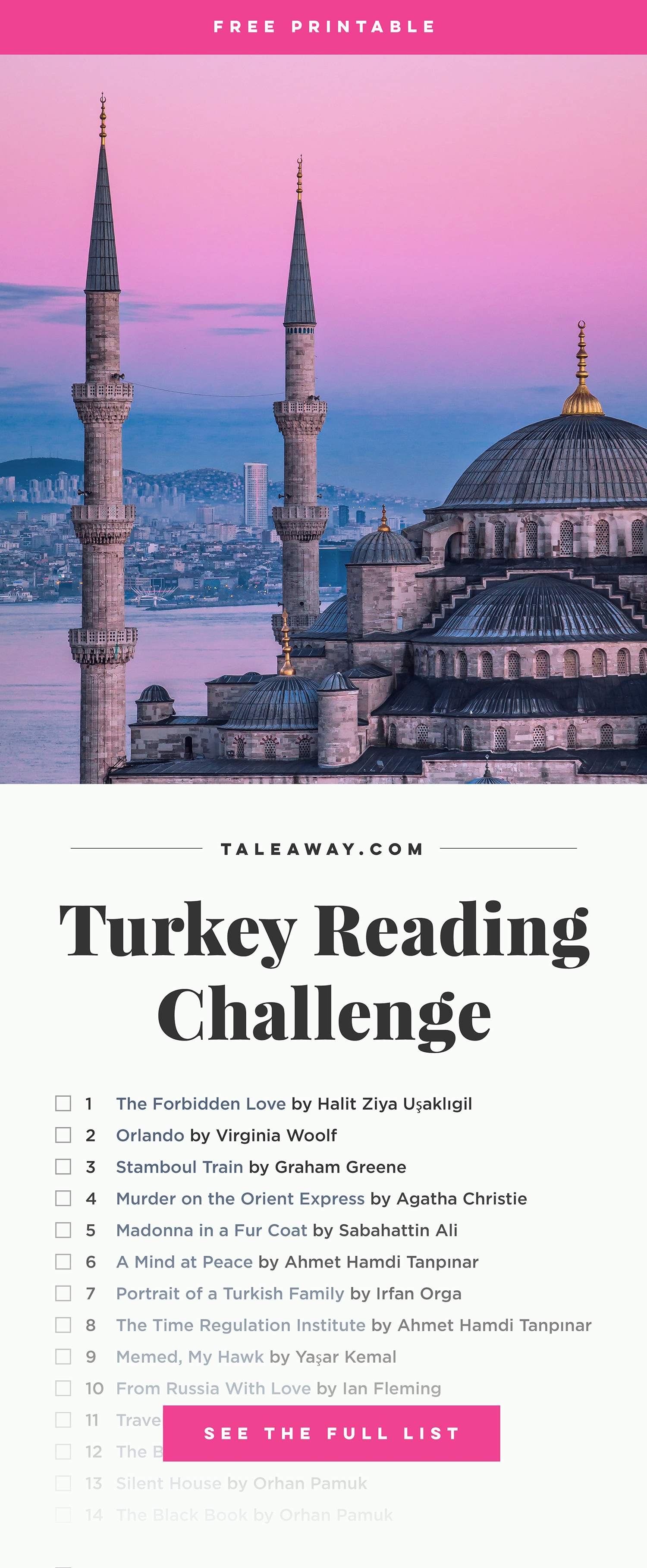



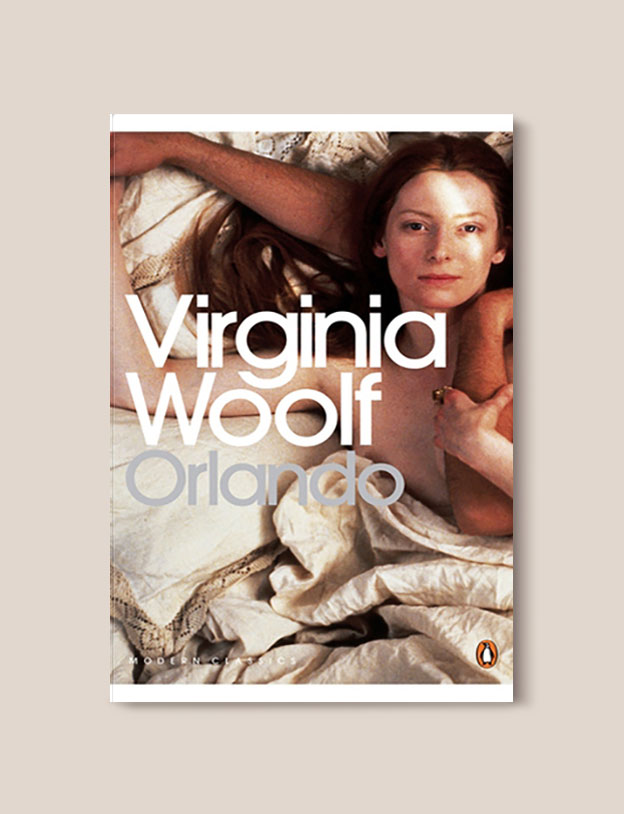







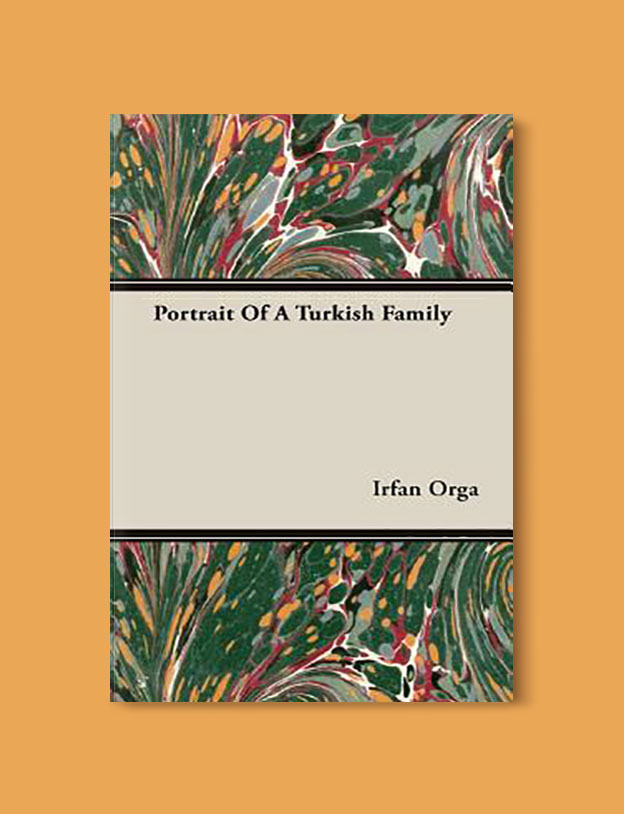
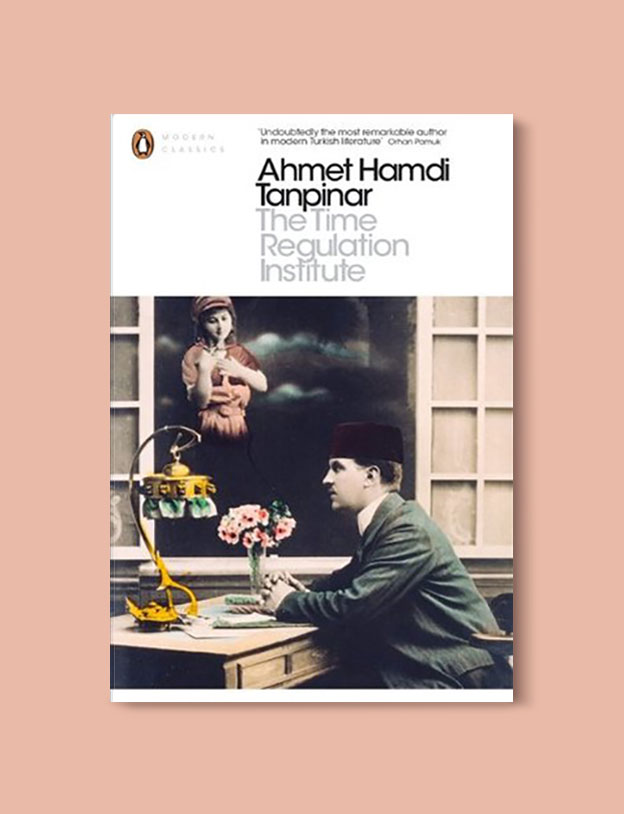
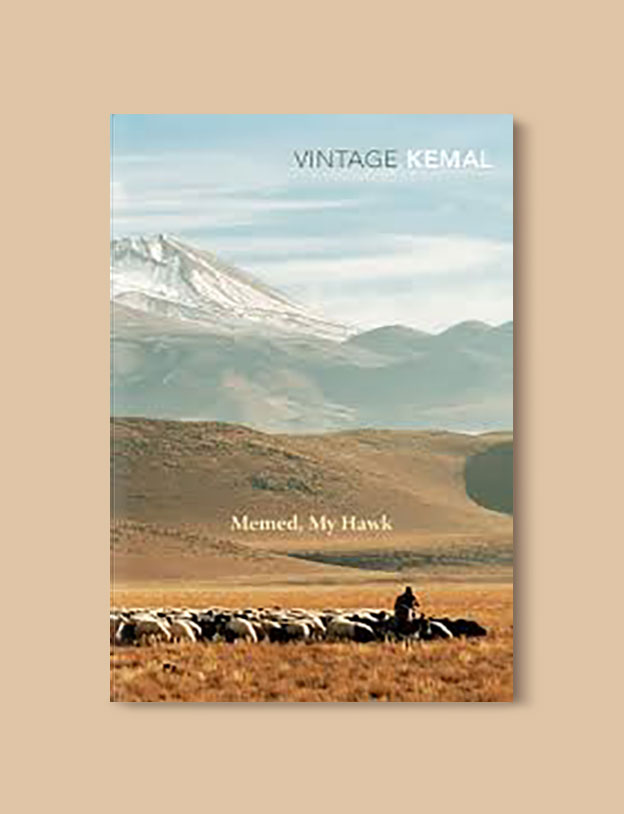
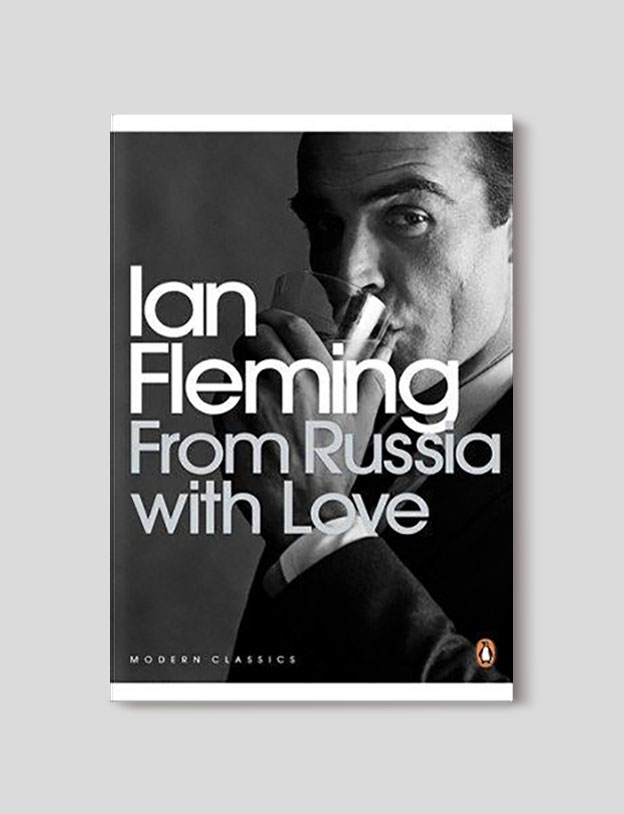















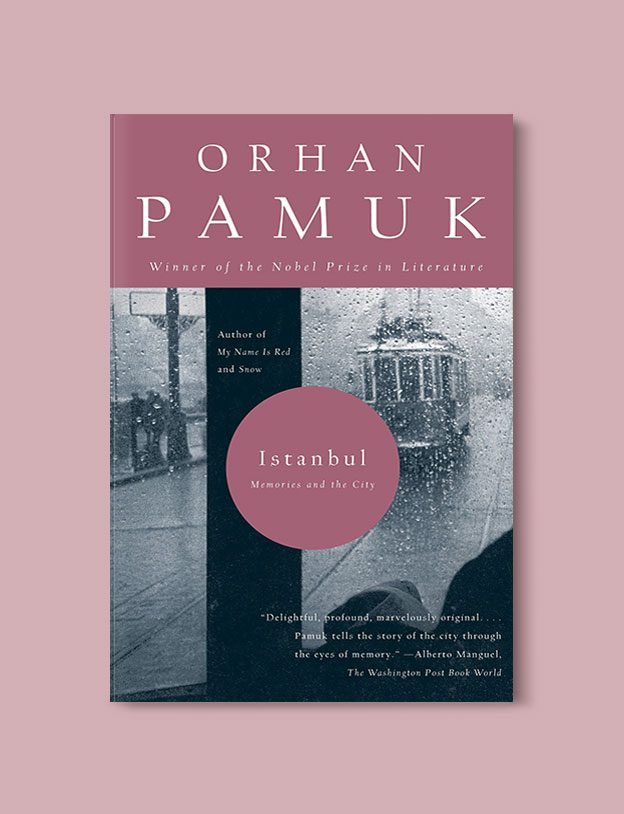


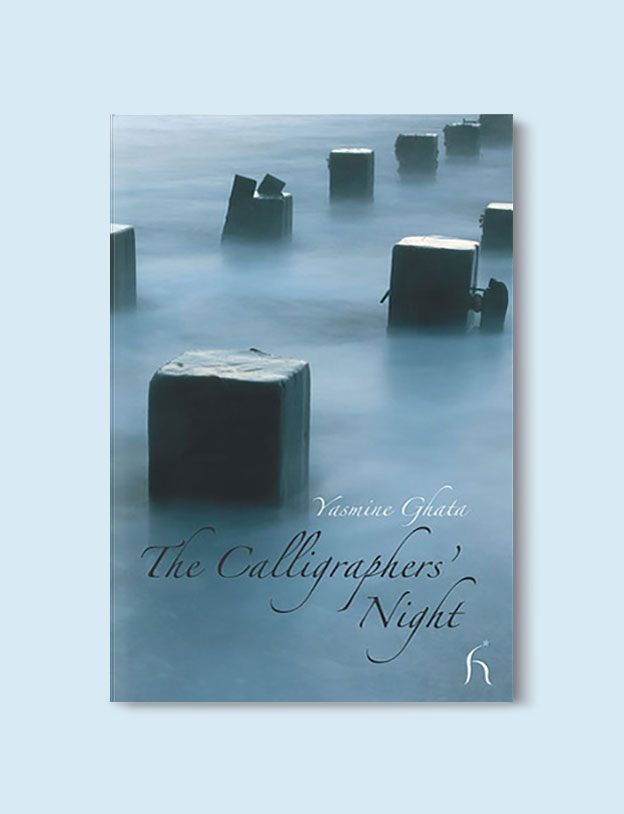






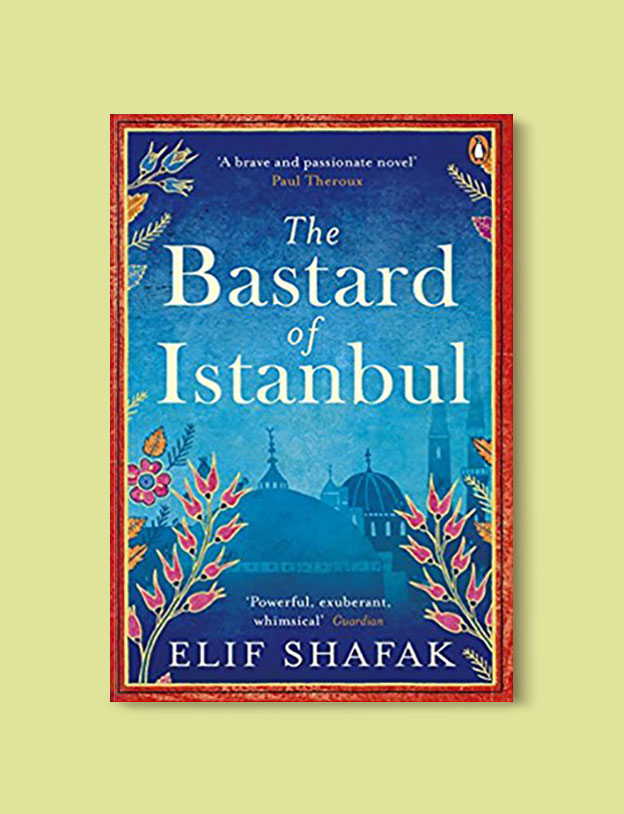
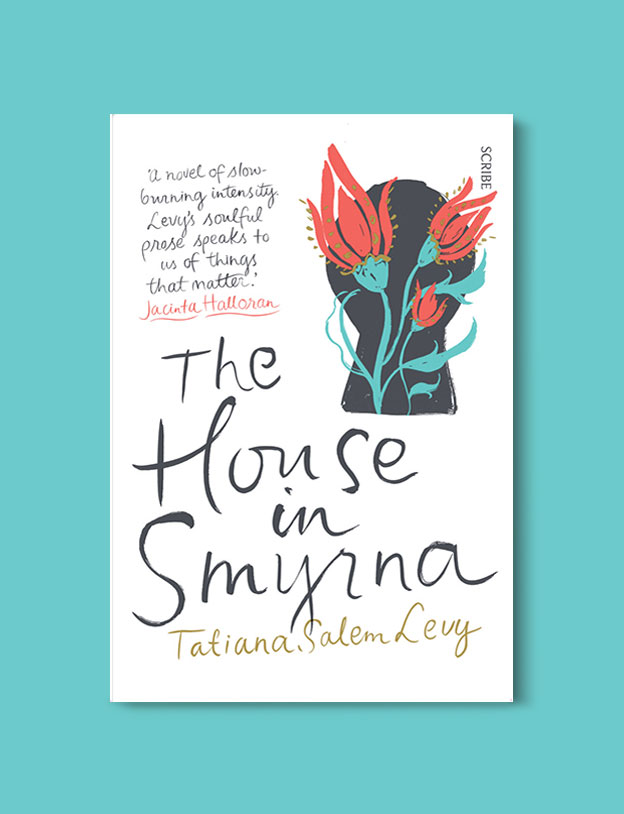








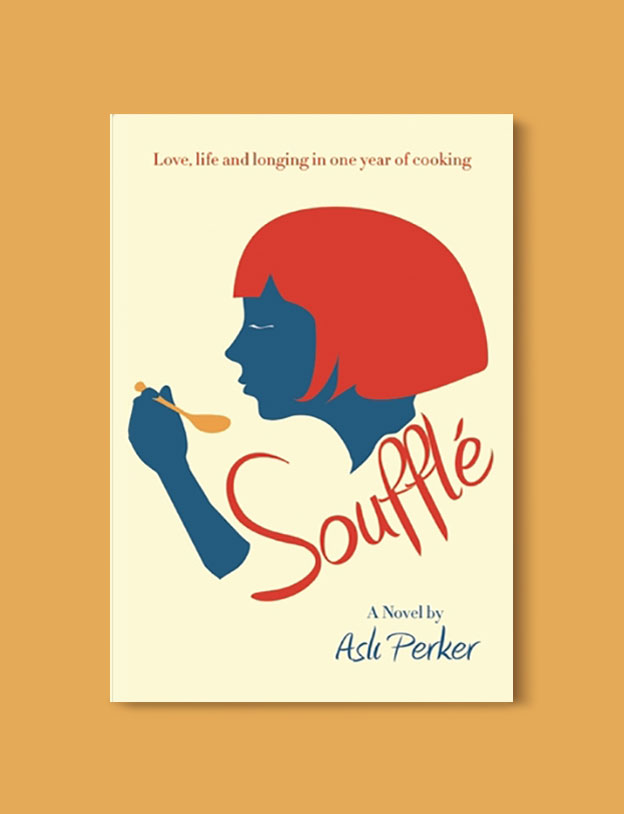

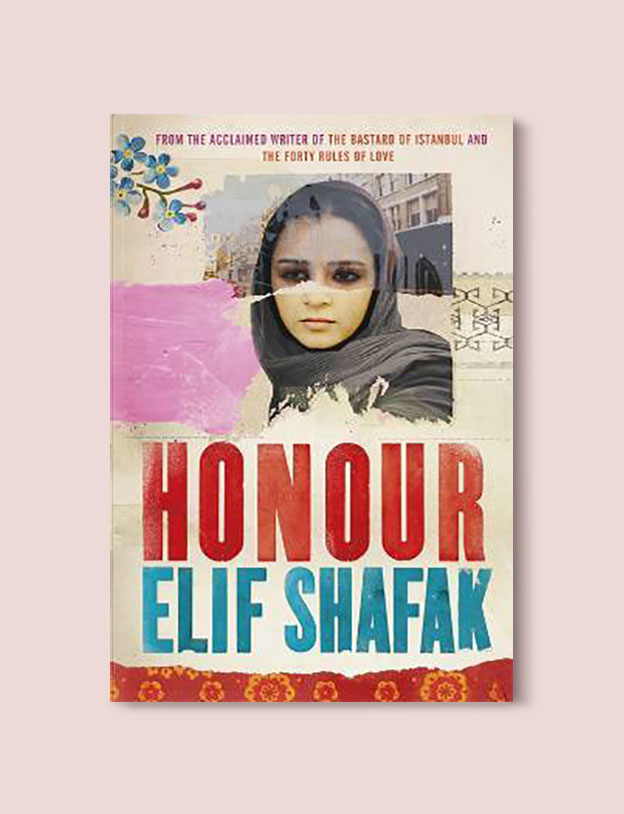
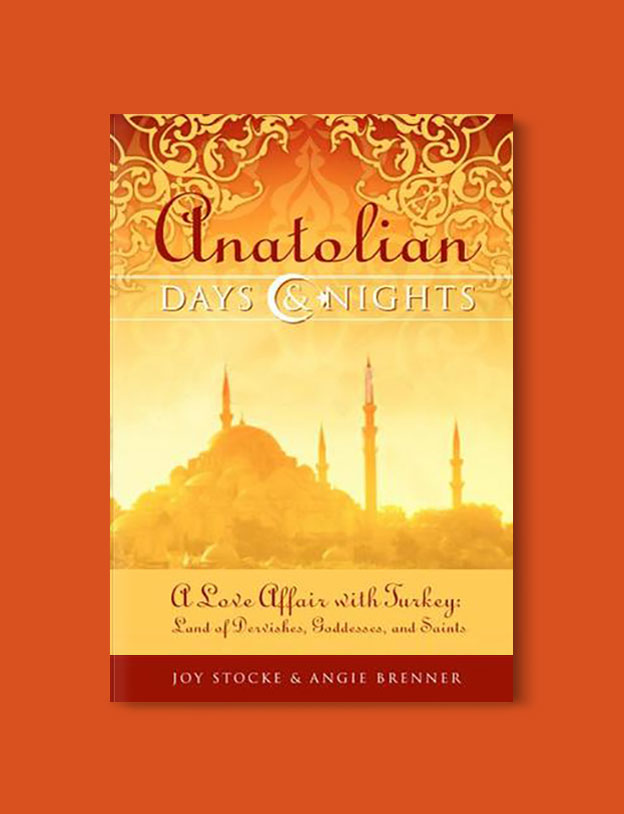

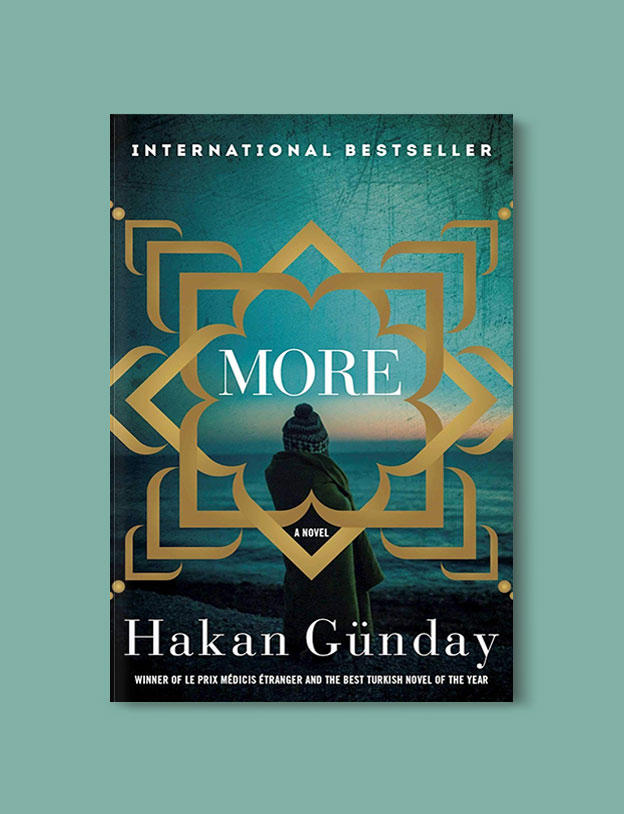












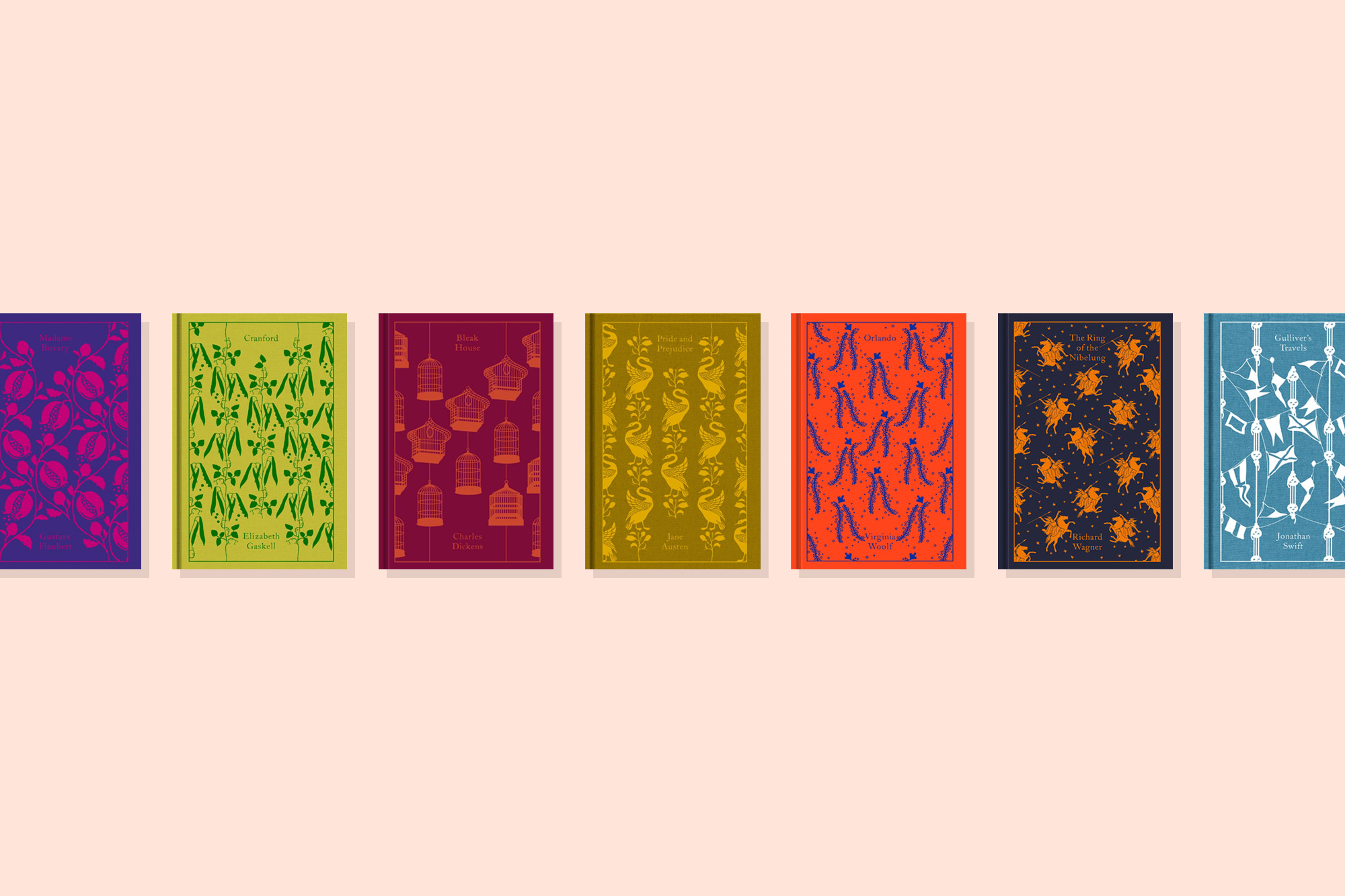

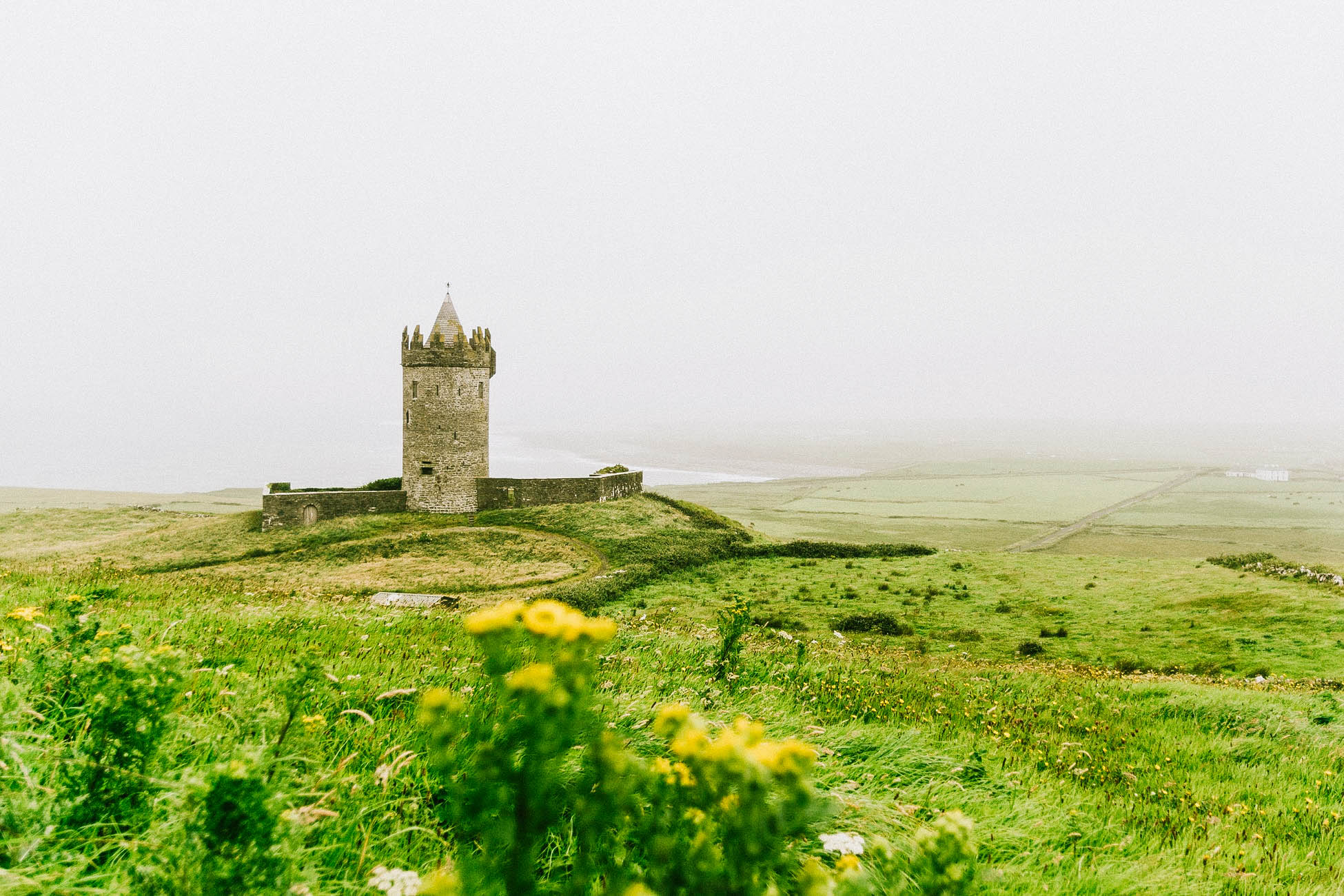
4 comments
I live in Istanbul and loved your list :).
I can also recommend Eylül by Mehmet Rauf and Handan by Halide Edip Adıvar, but I think there are no English versions for them.
Orhan Kemal is also a great author and there is a museum for him in Beyoğlu, Cihangir.
Hi Seçil, thanks so much for commenting and for your recommendations too! I couldn’t find the first titles in English either, but was pleased to discover The Idle Years by Orhan Kemal has been translated. I’ll try to check out the museum on my upcoming trip to Istanbul, thanks for the travel tip! 🙂
Wow! This is a four year old post, but I am thrilled to have seen it! It’s thoughtful and varied and simply great. THANK YOU!
Thanks so much for your lovely comment Anastasia, I always write these in the hope that they’ll be timeless!